Dandruff, a common skin condition that affects humans, can also trouble our beloved canine companions, including Huskies. If you’ve noticed those telltale white flakes on your Husky’s coat, you’re not alone. Dandruff in Huskies can be a source of concern for pet owners, but understanding its causes and how to manage it is essential for maintaining your dog’s well-being. In this comprehensive guide, we’ll delve into the world of dandruff in Huskies, exploring its causes, symptoms, prevention, and treatment options. By the end of this article, you’ll be equipped with the knowledge and strategies to help your Husky live a dandruff-free and comfortable life.
Why Does My Husky Have Dandruff?
Dandruff in Huskies can be caused by various factors, including dry climate conditions, inadequate nutrition, allergies, parasites, and grooming habits. It often results from dry skin and shedding of dead skin cells. Proper hydration, a balanced diet, regular grooming, and addressing underlying issues like allergies or parasites can help alleviate dandruff and keep your Husky’s skin healthy. If the problem persists, consult a veterinarian for a thorough evaluation.
Common Causes Of Dandruff In Huskies
Dandruff in Huskies can have several common causes:
- Dry Climate: Huskies are often adapted to cold climates, and exposure to dry, low-humidity environments can lead to dry skin and dandruff.
- Poor Diet: Inadequate nutrition can result in skin issues, including dandruff. A diet lacking essential fatty acids and nutrients can affect skin health.
- Allergies: Allergic reactions to food, pollen, or other environmental factors can trigger dandruff in Huskies.
- Parasites: Infestations of fleas, mites, or ticks can irritate the skin, leading to dandruff as a secondary symptom.
- Grooming Habits: Insufficient grooming or using harsh grooming products can contribute to skin dryness and dandruff.
How To Check Your Husky’s Coat And Skin For Dandruff?
Checking your Husky’s coat and skin for dandruff is an important part of maintaining their skin health. Here’s a step-by-step guide on how to do it:
Prepare Adequate Lighting: Choose a well-lit area, preferably with natural light, to examine your Husky’s coat and skin. Adequate lighting will help you spot dandruff more easily.
Part The Fur: Begin by gently parting your Husky’s fur using your fingers. Start at the neck and work your way down towards the tail. Be gentle to avoid causing discomfort to your pet.
Inspect The Skin: Look closely at the exposed skin. Dandruff may appear as small, white flakes on the skin’s surface. It can sometimes be mistaken for dirt, so pay attention to its texture and color.
Check For Redness Or Irritation: In addition to dandruff, look for any signs of redness, inflammation, or irritation on the skin. These may be indicators of underlying skin issues.
Use A Fine-Toothed Comb: For a more thorough examination, use a fine-toothed comb to part the fur and inspect the skin. The comb can help you separate the fur and reveal any dandruff closer to the skin.
Observe Your Husky’s Behavior: Pay attention to your Husky’s behavior during the inspection. If they show signs of discomfort, such as excessive scratching or biting at their skin, it may indicate the presence of dandruff or other skin problems.
Check Different Areas: Be sure to check various areas of your Husky’s body, including their back, sides, belly, and tail. Dandruff can occur in different areas and may vary in severity.
Regularly Monitor: Make it a habit to regularly check your Husky’s skin for dandruff, especially during seasonal changes or if you’ve recently made dietary or environmental adjustments.
How To Prevent Dandruff In Huskies?
Preventing dandruff in Huskies involves a combination of proper care, nutrition, and environmental management. Here are some effective ways to prevent dandruff in your Husky:
- Balanced Diet: Ensure your Husky receives a balanced and high-quality diet rich in essential fatty acids and nutrients. Omega-3 and omega-6 fatty acids are particularly important for skin health. Consult your veterinarian for dietary recommendations tailored to your dog’s needs.
- Adequate Hydration: Proper hydration is crucial for healthy skin. Ensure your Husky has access to clean and fresh water at all times.
- Regular Grooming: Maintain a consistent grooming routine for your Husky. Brushing their coat regularly helps distribute natural oils, preventing dryness and dandruff. Use a brush suitable for your Husky’s coat type.
- Use Appropriate Shampoos: Choose mild and moisturizing dog shampoos specifically designed for Huskies or dogs with sensitive skin. Avoid harsh or human shampoos that can strip natural oils from their skin.
- Bathing Frequency: Avoid excessive bathing, as it can strip the skin of essential oils. Bathe your Husky only when necessary or as recommended by your veterinarian.
- Humidify The Environment: If you live in a dry climate, consider using a humidifier indoors to maintain optimal humidity levels. Adequate indoor humidity can prevent dry skin.
- Allergy Management: If your Husky has known allergies, work with your veterinarian to identify and manage allergens. Allergies can contribute to dandruff, so addressing them is crucial.
- Parasite Control: Keep your Husky up-to-date on flea and tick prevention. Parasites can irritate the skin and lead to dandruff.
- Regular Vet Check-Ups: Schedule regular veterinary check-ups to monitor your Husky’s overall health and skin condition. Early detection of any skin issues can help prevent dandruff.
- Supplements: Consult your veterinarian about the potential use of supplements such as fish oil or omega fatty acid supplements to support skin health.
- Stress Reduction: Minimize stress in your Husky’s life, as stress can contribute to skin issues. Provide mental and physical stimulation, exercise, and a secure environment.
- Environmental Factors: Protect your Husky from extreme weather conditions. In cold weather, ensure they stay warm, and in hot weather, prevent overheating.
When To Consult A Veterinarian?
Consulting a veterinarian is essential when you notice signs of dandruff in your Husky, especially if the issue persists or is accompanied by other concerning symptoms. Here are specific situations when you should seek veterinary advice:
Persistent Dandruff: If your Husky’s dandruff does not improve or worsens despite your efforts to address it through proper care and grooming.
Excessive Itching Or Scratching: If your dog exhibits frequent itching, scratching, biting, or licking of their skin, it may indicate an underlying skin problem that requires professional evaluation.
Inflammation Or Redness: If you observe redness, swelling, or inflammation on your Husky’s skin, it could be a sign of an infection, allergy, or other skin condition that needs veterinary attention.
Hair Loss: Significant hair loss or bald patches in addition to dandruff may signal an underlying issue that requires diagnosis and treatment.
Changes In Behavior: If your Husky’s behavior changes, such as increased restlessness, discomfort, or a decrease in energy levels, it may be related to their skin condition.
Presence Of Sores Or Lesions: If you notice open sores, lesions, or any unusual growths on your Husky’s skin, it’s crucial to have them examined by a veterinarian promptly.
Foul Odor: A persistent foul odor emanating from your Husky’s skin or coat can be indicative of a skin infection or other medical issue.
Fever Or Systemic Symptoms: If your dog develops a fever, becomes lethargic, loses appetite, or exhibits other systemic symptoms along with dandruff, it may signify an underlying health problem.
Conclusion
In conclusion, dandruff in Huskies is a common issue with multiple potential causes, including dry climate, poor diet, allergies, parasites, and grooming practices. Preventing and managing dandruff involves a combination of proper nutrition, regular grooming, and creating a conducive environment. While home care can be effective, it’s essential to consult a veterinarian if dandruff persists or is accompanied by concerning symptoms. With the right care and early intervention, you can help your Husky maintain healthy skin and enjoy a comfortable, dandruff-free life. Prioritizing your pet’s skin health is a key aspect of responsible pet ownership.
FAQ’s
Q: Can Huskies Get Dandruff In Hot Weather?
A: Yes, hot and dry weather can contribute to dandruff in Huskies due to skin dryness. Proper hydration and skin care are essential year-round.
Q: Is Dandruff In Huskies Contagious To Other Pets?
A: No, dandruff in Huskies is not contagious to other pets or humans; it is typically a result of various factors specific to the individual dog.
Q: Can I Use Human Dandruff Shampoo On My Husky?
A: No, it’s not recommended. Use dog-specific, mild shampoos designed for Huskies or dogs with sensitive skin to avoid skin irritation.
Q: Can Allergies Cause Dandruff In Huskies, And How Can I Manage It?
A: Yes, allergies can contribute to dandruff. Consult a vet for allergy testing and follow their recommendations for management.
Q: Is Dandruff In Huskies A Sign Of A Serious Health Issue?
A: Not always, but persistent dandruff or accompanying symptoms may indicate an underlying health problem. Consult a vet for a proper diagnosis and treatment.

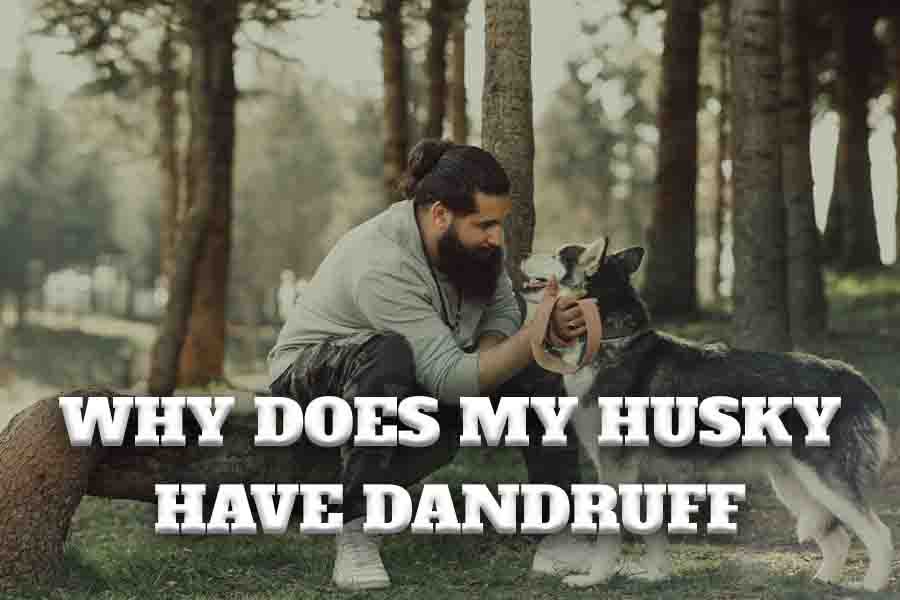
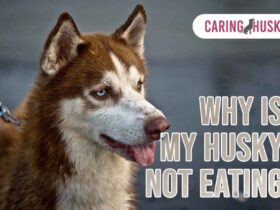
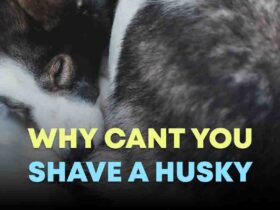
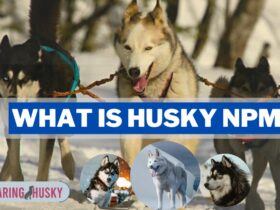

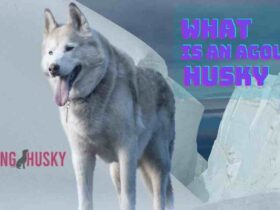
Leave a Reply